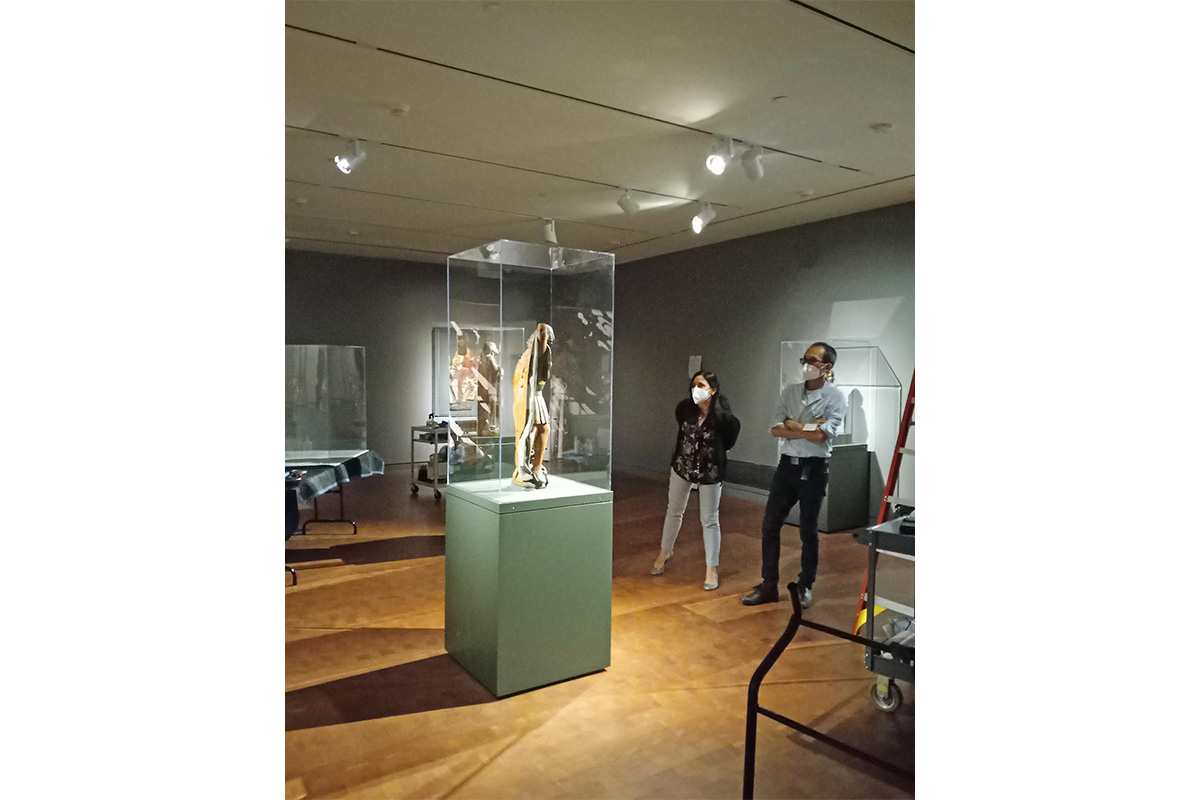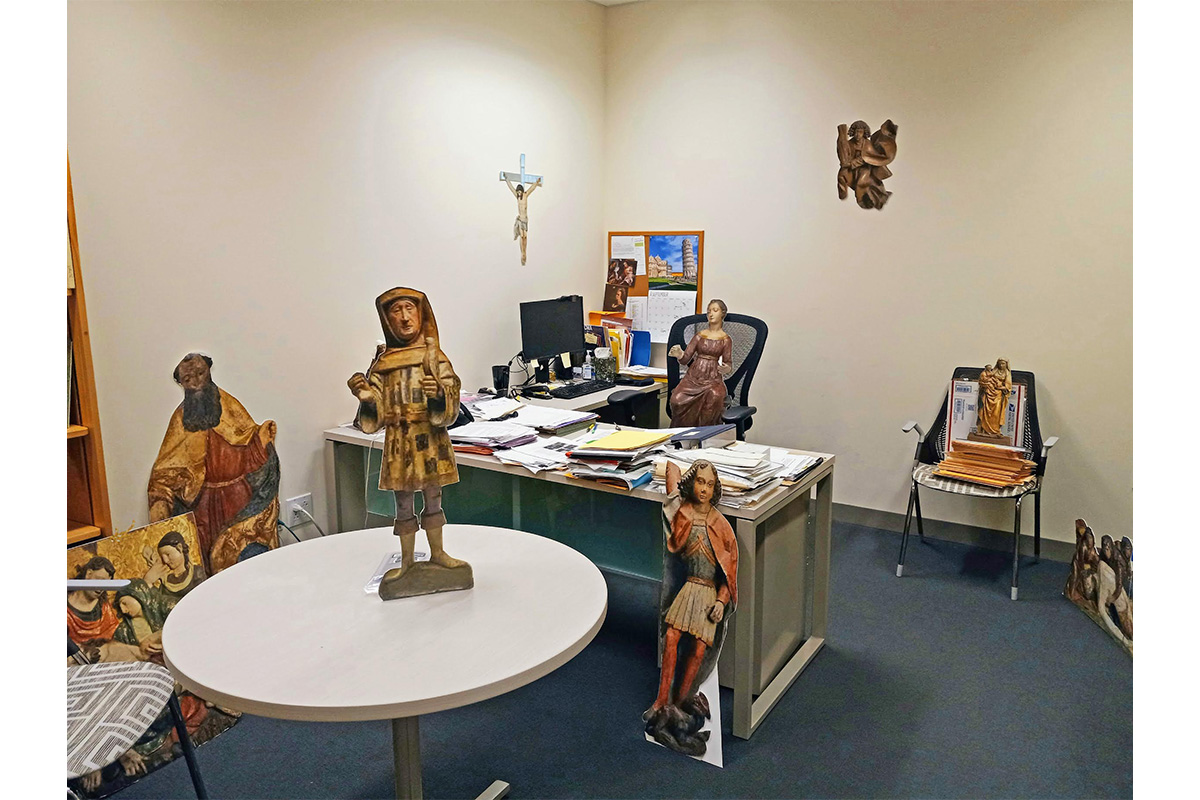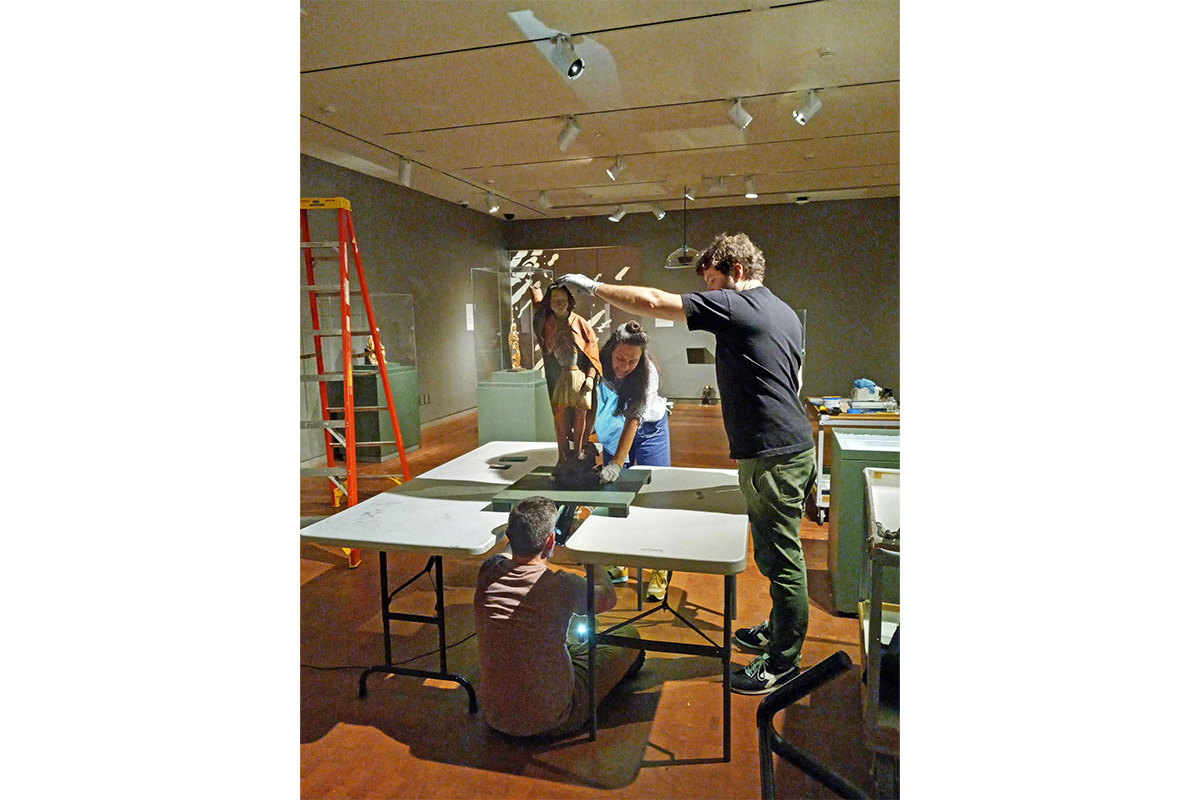
Installing Brought to Life: Painted Wood Sculpture from Europe, 1300–1700
Kelly Holbert, Exhibition Manager, gives a behind-the-scenes glimpse into the world of preparing and installing an exhibition.
On September 16, an exhibition opened at the SCMA that was different in appearance that most of the exhibitions that had preceded it. This time light was controlled and altered on every surface, from glass windows to partition walls, creating an inviting, dappled, green world filled with color and sound.
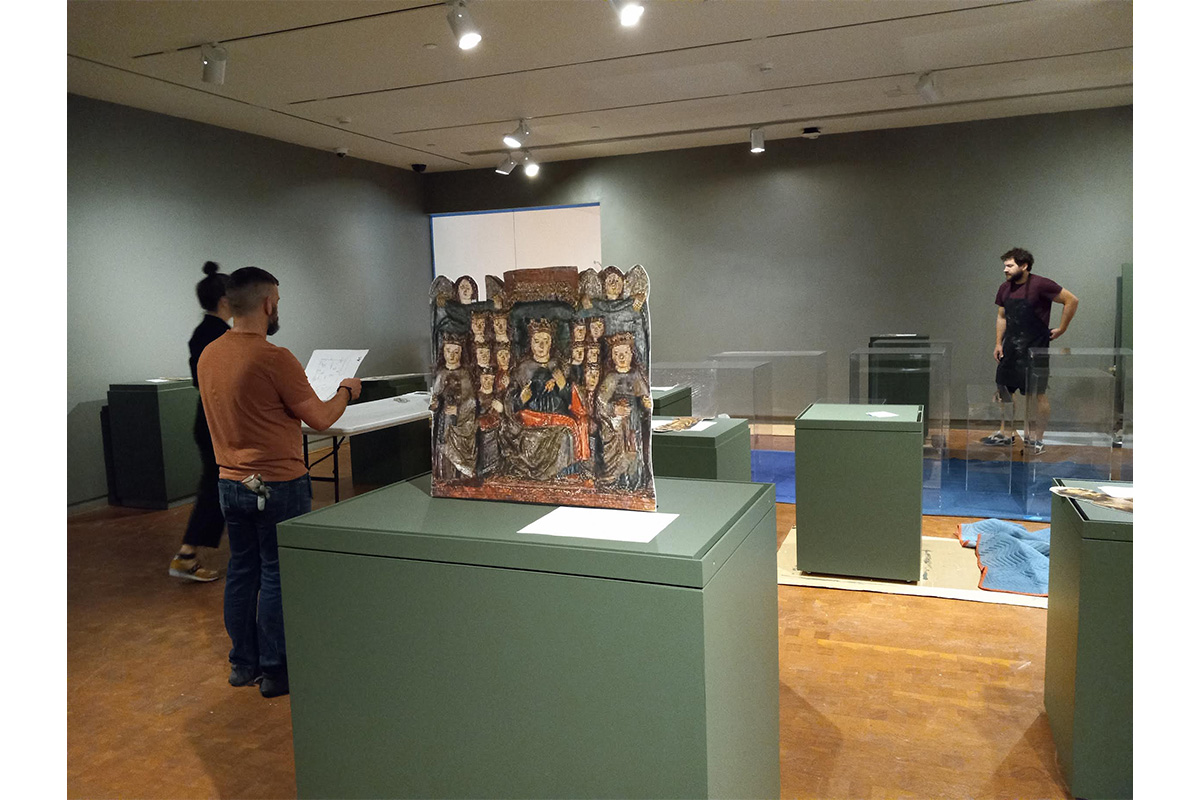
The planning began with our curator of painting and sculpture, Danielle Carrabino, who selected 16 works of art for an exhibition dedicated to painted wood sculptures from Europe, 1300–1700. These works were primarily drawn from the SCMA’s collection with the addition of six loans from nearby museums (Mead Art Museum, Amherst College; Mt. Holyoke College Art Museum; and Yale University). Some of the SCMA’s works were in a poor state of preservation, and needed treatment. For more on the conservation work and the themes of the exhibition see this article.
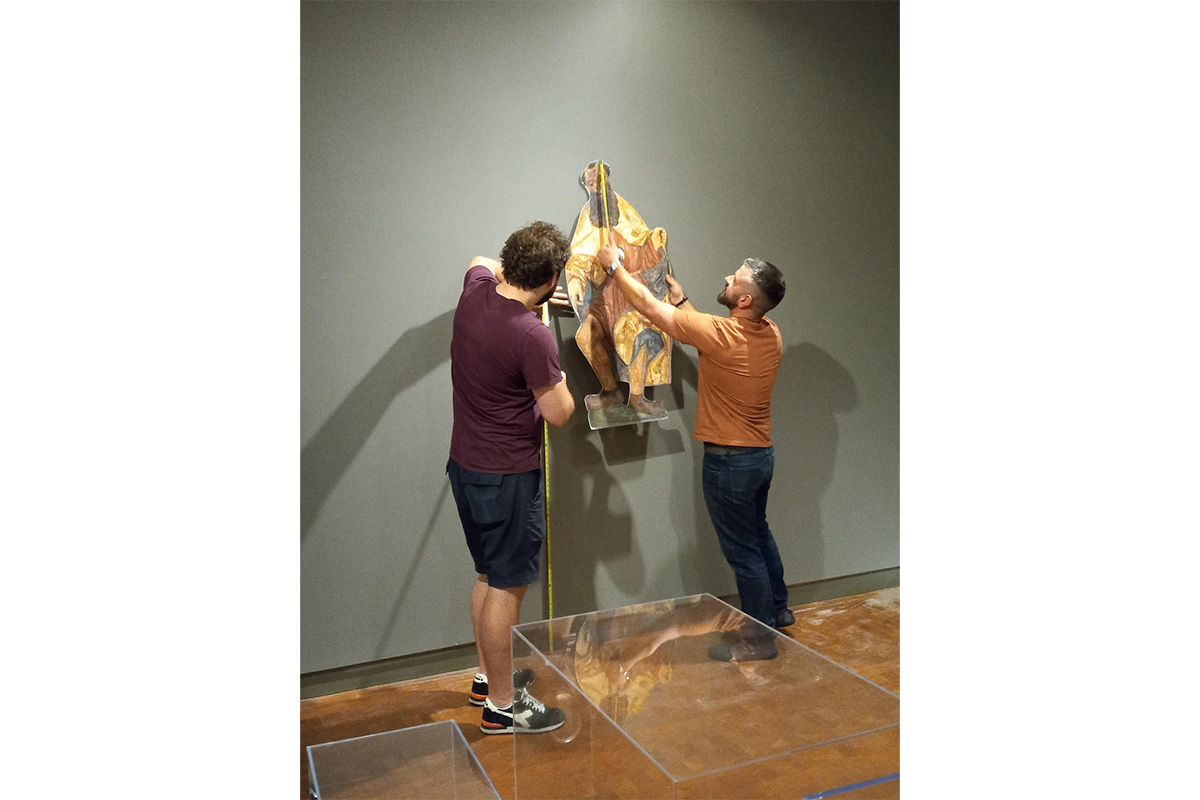
The checklist Danielle created was shared with the Collections Management department for assessment of the condition of the works, the need for cases with vitrines (Plexiglas covers) and new mounts and supports.
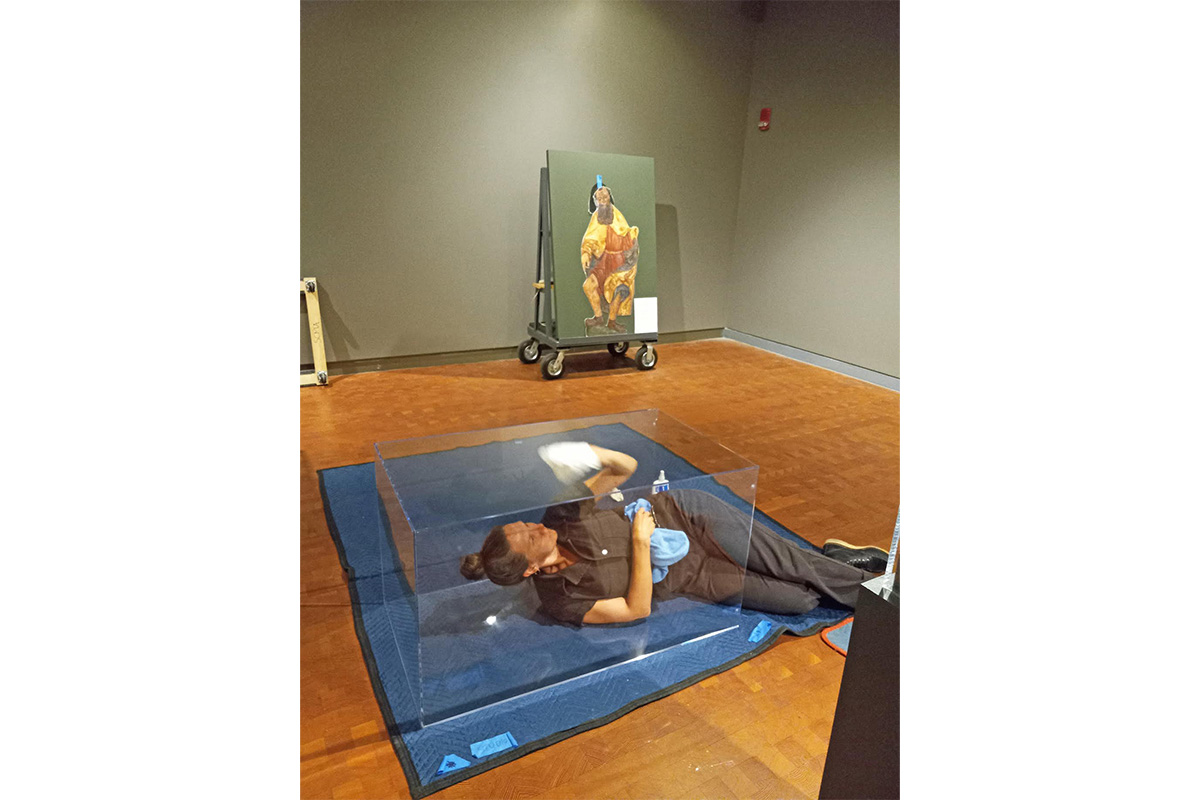
It was at this point that exhibition designer Justin Lee, of LEE2 DESIGN, began to work on creating a layout and color scheme that would evoke the feel of a light-dappled forest. He proposed using green and gray paint colors, various lighting effects, and partition walls placed at angles to create unexpected paths through the gallery.
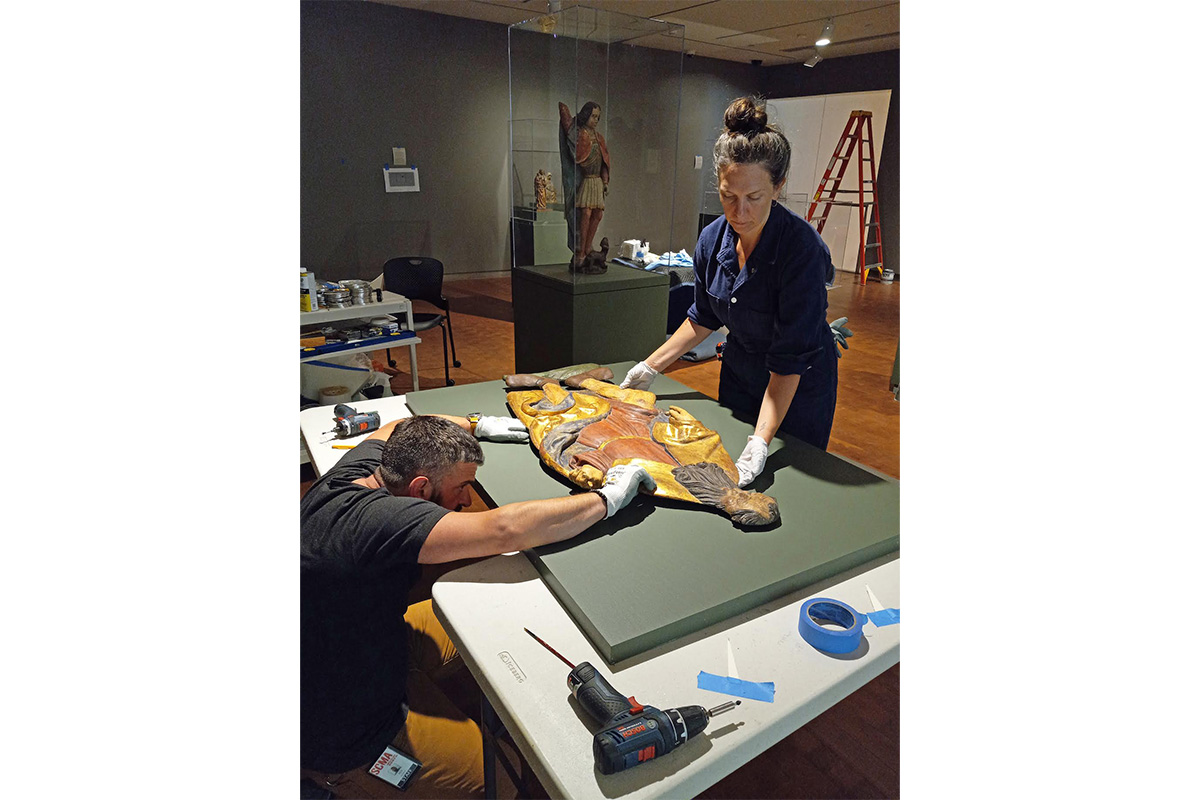
Placement of the object cases was also key, and followed the thematic groupings that Danielle had created. Since most of the wooden sculptures were fragile, it was helpful to have scaled, color cutouts that Justin had created during the design process. Our team of preparators, Nik Asikis, Matt Cummings, and Leah Hughes, used them for measuring wall height placements and fine-tuning angled placements on the pedestals.
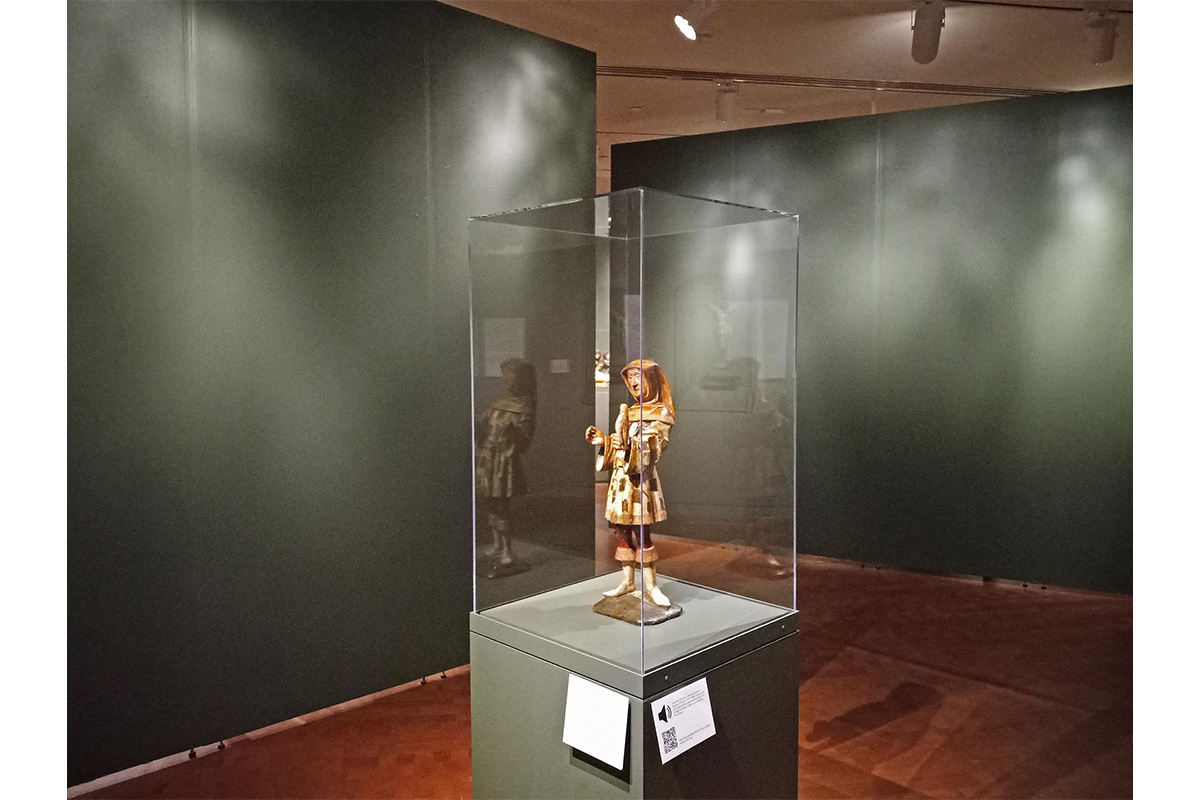
Before the works of art could be installed, the mounts had to be attached to the decks (or surfaces) of the pedestals, and the vitrines had to be cleaned inside and out. The sound cone for a music station was attached to the ceiling, and the labels, some of which have QR codes for relevant pieces of music, were matched to the sculptures. Most important to the look of the gallery was the lighting, which took several days to complete, in consultation with Justin. Clear filters with frosted film and strips of light-masking foil were applied to the ceiling fixtures to create a dappled effect on the walls.
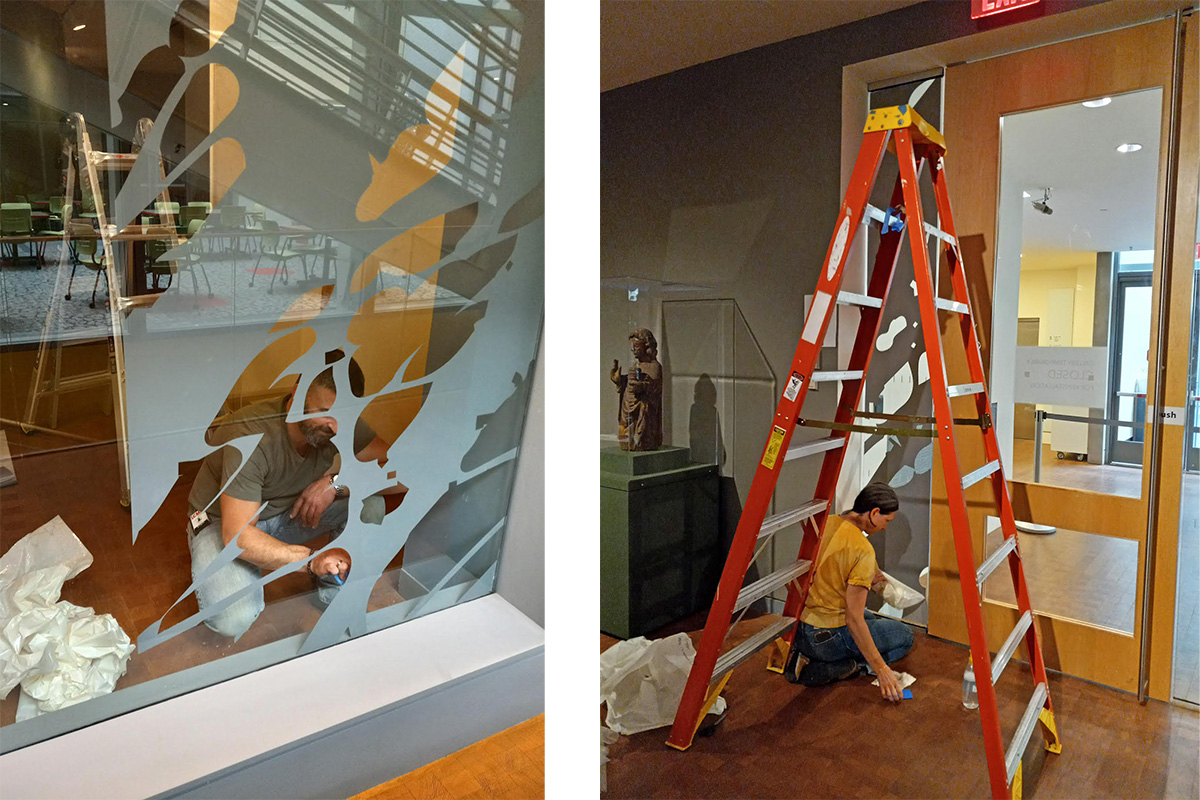
On the glass windows and doorways, patterns of gray vinyl were adhered and smoothed down to filter the light and enhance the mottled effect. Thanks to a team effort, the Sacerdote gallery was transformed into a serene forest in which painted wood sculptures could be seen in the round and encountered in an unexpectedly dramatic fashion.
